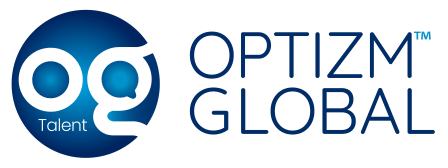The staffing and recruiting industry have never been static, responding to the needs of the market, the rhythms of the economy, and the latest advances in technology. But change has picked up speed exponentially in recent times as a result of digitization, the fallouts of the COVID-19 pandemic, and changing expectations on the part of employers and job seekers alike. As we enter 2025, US staffing careers are at the cusp of a revolution that will remap the agency model and the way people are found, hired, and managed.
Artificial Intelligence Will Continue to Revolutionize Recruitment
Though their influence will be considerably more significant in 2025, artificial intelligence (AI) and automation are already making significant gains in the staffing sector. Using chatbots and virtual agents, AI-enabled applications—resume filtering, talent acquisition, skill alignment, even first-round interviewing—are increasingly sought for. As artificial intelligence rises, employment firms will find it much more easy and rapid to spot qualified individuals. Applications grounded in machine learning may read contextual language, emotional quotient, behavioral patterns, not only keywords. This helps to lower time-to-hiring and improve applicant match quality.
The increase of automation does not indicate the extinction of recruiters. Conversely, human touch will be as much in demand as ever for establishing trust, delving deeply into consumer needs, and providing a qualified candidate experience. The best performing staffing professionals will be those who know how to leverage artificial intelligence technologies while nevertheless offering the sensitivity and intuition only human beings can supply.
The Gig Economy Will Expand Further
The gig economy has been on the rise, and 2025 promises to see another boom in contract and freelance work. Companies are increasingly seeking flexible, on-demand workers to address short-term project requirements or weather volatile market conditions. In response, there is an increasing need for temporary, contract, and freelance-specialized staffing agencies.
This will necessitate a change in the way US staffing jobs are organized. Hire professionals not only for permanent assignments but for overseeing project-based and freelance resources too. In addition, staffing companies will have to develop new frameworks for managing contracts, compliance, payment, and benefits for the gig workers, all to ensure a seamless experience for clients as well as talent.
Remote and Hybrid Work Models Are the New Norm
The work-from-home revolution is no longer an emergency measure to the pandemic—it’s a permanent change in the way people work. In 2025, most organizations have embraced fully remote or hybrid work arrangements. Job seekers now demand flexibility, and companies need to adapt to these demands to secure top talent. Staffing professionals thus need to be ready to provide remote and hybrid positions across sectors. It is imperative to understand the requirements of remote work, time zone management, and digital teamwork tools.
Also, remote employment introduces the extra layer of complexity of cross-border talent sourcing and understanding local labour laws and compliance structures. Such a shift also provides the option to tap a much broader pool of talent, particularly for special or hard-to-fill positions. Agencies that can successfully manage the difficulties of remote work will be better placed to serve client needs and be competitive in an increasingly competitive marketplace.
Diversity, Equity, and Inclusion (DEI) Will Be a Priority
DEI is no longer a “nice-to-have” for businesses—it’s a business imperative. Employers in 2025 must construct diverse teams that represent their customers and foster innovation. Staffing agencies are therefore under mounting pressure to bring in candidates with extremely diverse sets of experiences and backgrounds.
Recruiters will need to ensure talent pipelines are diverse and that the hiring process is equitable. This will include the responsible deployment of AI, the crafting of diverse job descriptions, and close collaboration with customers to establish and track DEI objectives. Staffing agencies with the ability to prove high levels of commitment to diversity—not only in words, but in actual outcomes—will be in great demand.
Upskilling and Reskilling Will Define Talent Strategies
One of the greatest challenges for employers at present is the increasing skills gap. As technology rapidly advances, there is a pressing need for employees to acquire new skills or update current ones. In 2025, recruiting agencies will be important in filling this gap. Advanced agencies are already collaborating with digital learning solutions and training organizations to equip candidates with hot skills in fields such as data analysis, cybersecurity, artificial intelligence, and digital marketing. Providing access to learning opportunities not only makes a candidate more employable but also enhances loyalty and commitment.
In US staffing careers, this represents a move from traditional hiring to talent development. Recruiters need not only to spot talent but also facilitate their learning path—guaranteeing long-term employability and client satisfaction.
Data-Driven Decision Making Will Drive Performance
Though the recruitment sector has always been data-rich, in 2025 only those firms able to get insightful analysis from the data will flourish. Data analytics will be applied in candidate sourcing to client relationship management to monitor performance, project trends, and maximize recruitment plans. Hunters will have to grow acclimated to predictive analytics, metrics, and data dashboards.
Accelerating operations and providing quantifiable results to clients depend on knowing what data to measure—time-to-hire, cost-per-hire, placement success rates, and applicant satisfaction. Establishing confidence will also depend on data openness. Both candidates and clients want real-time comments and insights on the recruiting process, hence staffing companies who can provide this will be different from the others.
Employer Branding and Candidate Experience Will Take Center Stage
By 2025, job candidates are no longer content with transactional relationships. They wish to work for firms whose values are similar to theirs, have a great culture at the workplace, and offer learning opportunities. This emphasizes candidate experience and employer branding more than ever before. Staffing firms will have a significant role to influence their clients’ perception.
As ambassadors for the brands, recruiters have a responsibility to make sure that the candidates are dealt with respect, kept up-to-date, and supported throughout the recruitment process. A negative candidate experience can tarnish both the agencies and client reputation. Just as much, assisting clients to develop and articulate a compelling employer brand—particularly in highly competitive sectors—can greatly enhance placement rates and candidate loyalty.
Conclusion
The future of US staffing employment in 2025 is shaped by agility, technology, and a renewed emphasis on human connection. As the industry is fundamentally transformed, staffing professionals need to transform themselves from job-fillers to strategic talent advisors. Professionals who adopt AI, focus on DEI, shift to flexible work models, and invest in upskilling will not just survive but prosper in the future staffing world.
With a focus on data, a passion for people, and the nimbleness to shift with market currents, the staffing sector is poised to define the future of work in America. As a recruiter, agency owner, or HR executive, it is important to grasp these trends to move successfully through the complicated, yet rewarding, landscape of US staffing careers in 2025 and beyond.






